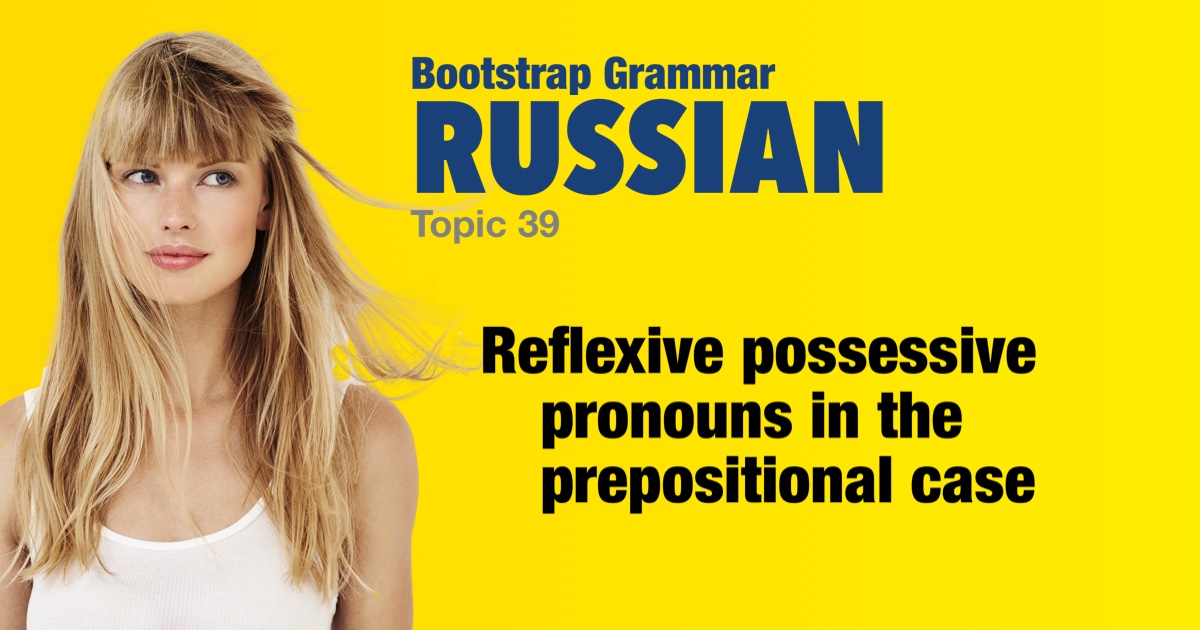Russian grammar - Reflexive possessive pronouns in the prepositional case |
|||
|
|||
If the subject and owner of object are the same, you should use the reflexive form of possessive pronouns. This is the equivalent of the English: 'my own', 'his own' etc. The reflective possessive pronouns in the prepositional case correspond to the gender and number of object noun: • своём (masc. singular), своей (fem. singular), своём (neu. singular), своих (plural, all genders) |
| Examples: | |
|
Я думаю о своём кролике.
I am thinking about my (own) rabbit.
|
|
|
Он говорит о своей рыбе.
He is talking about his (own) fish.
|
|
|
Она говорит о его рыбе тоже.
She is talking about his (other male person's) fish too.
|
|
|
Он говорит о её рыбе.
He is talking about her (other female person's) fish.
|
|
|
Ты думаешь о своей лошади?
Are you (informal) thinking about your horse?
|
|
|
Мы думаем о своей птице.
We are thinking about our bird.
|
|
|
Почему вы думаете о своей утке?
Why are you (formal) thinking about your duck?
|
|
|
Он в своей машине.
He is in his (own) car.
|
|
|
Он в его машине.
He is in his (some other male person's) car.
|
|
|
Кошка в своей кровати.
The cat is in its (own) bed.
|
|
|
Собака тоже в её кровати.
The dog is also in her bed.
|
|
|
Они дома.
They are at home.
|
|
 |
|



